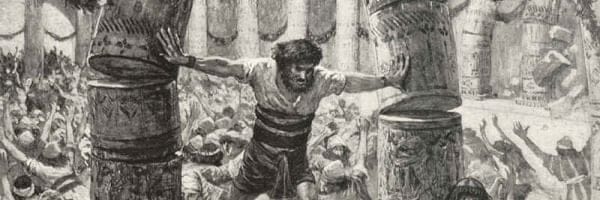What is idolatry?
As is usual amongst many non-Catholics, they do not have a solid grasp on worship or idolatry. This is unfortunate, but it a direct result of splitting from the infallible teaching authority instituted by Christ, as their final rule for faith & practice (the Bible) is not explicitly clear on these topics. The concepts and teachings of the Catholic Church can be found in the Bible but are usually glossed over due to reading the sacred scriptures with a confirmation bias.
As I have trekked this journey towards the Catholic Faith, I have been accused multiple times of idolatry or idol worship with my prayers to saints or in the presence of a statue of the Blessed Virgin Mary. But this comes from a foundational misunderstanding of worship, idolatry or even what the Catholic Church teaches.
So, what is true worship?
Christian worship is the proper homage paid to God, in the way that He desires.
“Adoration is the first act of the virtue of religion. To adore God is to acknowledge him as God, as the Creator and Savior, the Lord and Master of everything that exists…” - CCC 2096
Worship can be divided into two types: private (usually internal) and public (external).
What is internal worship?
Acts of worship that are accomplished in the soul, without any outward sign or external manifestation. These include offers of interior adoration, mental prayer, acts of faith, hope and charity, etc. - Credo 335
What is external worship?
Acts of worship that are accomplished with the body. These include vocal prayer and singing, gestures of homage like bowing or kneeling, processions, and above all, participation in the public worship of the Church. - Credo 337
The Greek word λατρεία (latreia) is the word used for adoration, meaning God alone should be given this form of worship on account of His infinite perfection and supreme dominion over all creation. Some examples of internal worship would be:
- Faith in God's absolute authority
- Hope in Him as the final end and fulfillment
- Love directed to God above all things
- Submission of intellect and will
- Offering of the heart in prayer, praise, or thanksgiving to God.
Some examples of public / external worship would be:
- Kneeling or prostrating in submission before God
- Offering sacrifices (the Holy Sacrifice of the Mass)
- Public worship in liturgy
- Vocal prayer addressed directly to God
- Genuflecting or prostrating before the Blessed Sacrament (real presence of Christ)
- Offering incense as a sign of divine worship
- Singing hymns of divine praise to God
As many of these things in worship are observed by non-Catholics and misconstrued as idolatry, the reader needs to clearly make the distinction between these outward acts of worship (kneeling, prayer, hymns) by understanding the intent (where these acts are directed). If these acts are directed to God with a knowledge or intent that we are offering worship to God, then they would be classified as worship (latria). Intent is the key in understanding this.
So what then is idolatry?
Of course, if one believes that the above described outward actions are the sum of all worship, one will easily believe that performing these actions to anything other than God would be idolatry.
But as idolatry has everything to do with the intentions of the heart, we can see that the actions (kneeling, prayer, hymns) are only vehicles (or expressions) for intentions. One can even commit idolatry in one's heart, without any vehicle or outward expression.
For instance, if a man places his trust in money (instead of God), though he acknowledge or believe in God or not, if he ultimately believes that the money buys him power, security, influence, etc and works harder to gain this money than he does the favor of God, he has ultimately placed the money higher than God. This is idolatry, as the money has taken the place of God. The same can be said of any other vice that one begins to value more than God.
So the outward expressions which are most commonly referred to by non-Catholics as "worship" are only vehicles of intentions. The intention can be good when only directed to God as Supreme Divine Being, or the intention can be wrong by esteeming the object, person or thing as a supreme divine being, when it is not. To give that which is owed to God and God alone and give it to anything created by the Divine, is idolatry.
So what is happening when someone kneels before a statue of Mary and prays?
There could be (3) different things that are happening in this moment.
- The individual kneeling and praying could be worshiping the statue itself as God (having the thought / intention that the statue itself is the Supreme Being, a God).
- The individual could be offering intentions of worship to the Blessed Virgin (having the thought / intention that the Blessed Virgin (in heaven) is the Supreme Being, God).
- The individual could be showing honor (kneeling) to the Blessed Virgin (who dwells in heaven, as do all saints) and asking (praying) her to intercede to her Divine Son (The King of Kings) on our behalf for a specific request.
The Catholic Church teaches that honor can be paid to created things but true worship (latria) is reserved for God alone. Even non-Catholics honor those in authority (the President, the Governor, their parents, their pastor) along with the deceased (by decorating the grave of some family member, service man, friend; or with photos / memories). Honor, in it's proper place, is good and appropriate.
Again, if the honor that is being paid to the individual or thing replaces God as the Supreme Lord, then a form of idolatry has been committed. For instance, a husband can love his wife more than God or place his family in more importance than worship of God; these public or private acts then become idolatrous.
So why kneel and pray to Mary?
In Catholic Teaching, Mary was greeted by the angel Gabriel as “full of grace” (Luke 1:28), indicating her unique sanctity and divine favor. Mary then gave her wholehearted “yes” (fiat) to God’s plan (Luke 1:38). Because of her obedience, the Word of God (Son of God) became flesh and salvation entered the world. Mary became the model of faith, humility and trust in God. At the wedding in Cana, she tells the servants "Whatsoever he shall say to you, do ye".
Naturally, as the one who was the "God bearer" who brought forth the child who would be called "God with us", she is given a special privilege that no other earthly person would ever be given. Honor and respect should be given to her, as the one who bore the Word of God in her womb. She was prepared for this task before the foundations of the world, as God is all knowing and even prophesied of this happening from the mouth of the Prophet Isaiah.
Her aged and elder cousin Elizabeth, filled with the Holy Ghost, exclaimed: "Blessed art thou among women". Mary, in her Magnificat, declared "my spirit hath rejoiced in God my Savior because he hath regarded the humility of his handmaid" and then prophesied that "from henceforth all generations shall call me blessed".
God truly honored her first by selecting, preparing and choosing her as the means by which Salvation would enter the world for the fallen and degenerate race of Adam. Mary does not become Divine or equal with Christ, as she is a created being; but her unparalleled humility, obedience & role gives her a higher position of God's created beings, as she carried within her, God: the Creator of the universe.
Just as Eve failed the test of submission & humility bringing condemnation upon all her seed, in similar manner the Blessed Virgin passed the test of submission & humility, bringing Salvation into the world and eternal bliss to all her "spiritual seed". She becomes the New Eve, the New Mother of Living, the Mother of the Church. Christ, in his final agony, while shamefully hanging there bearing the sins of all mankind, addressed his beloved disciple John who stood with him at the foot of the cross and said "Behold thy mother". Christ, in His profound and spiritual statement, gives His mother to be the mother of His disciple John, thereby giving her to be the spiritual Mother of Christians.
If the Blessed Virgin Mary was chosen to be the Mother of God and Christ Himself gives her to be the mother of John, what sense is there in thinking that she is unworthy to be called Our Mother, as this was by the appointment of God Himself? As Eve (Havah) was called the Source of Life (by definition of her name), and Rachel is pictured in Jeremiah 31 as a mother "weeping for her children" in a pictorial sense, so too the Blessed Virgin Mary who surpasses every other woman in role, obedience and humility is our spiritual mother. She is the virtuous woman, and her price exceeds that of rubies!
So to directly answer the question then, Why do we kneel and pray to Mary?
Because she is a chosen vessel which was given intimate access to God.
As Catholics, we believe Christ conquered death and His saints now dwell with Him in heaven. We believe that we are mystically united to the body of Christ, His Church - His Bride. We believe that we are encompassed about with a "great cloud of witnesses" (Hebrews 12:1) and these are the friends of God. They have direct access to God. They can hear our prayers and may petition God for some favor if they feel that it would be in alignment with God's will.
So also Mary, the chosen vessel of God, is the crowning jewel of creation, and has the closest access to the heart of God. Kneeling and prayers to the Blessed Virgin only become idolatrous when the individual esteems the creation more than the Creator. She fills a role in God's Salvation Program - Grace, Truth, & Salvation are not attributes of her own, but she becomes a "channel" for these things. We commit idolatry when we ascribe to her that which belongs to God alone, such as the attributes of divinity, the ability to act independently of God, or ultimate authority over grace or salvation.
All the forms of honor (praise, bowing, kneeling, kissing, praying, singing) are vehicles for our intentions. If in our intentions we place her above God, then we have committed idolatry. If our intentions are honor for her position, authority, grace, humility or obedience, then it is not latria: it is not idolatry.

